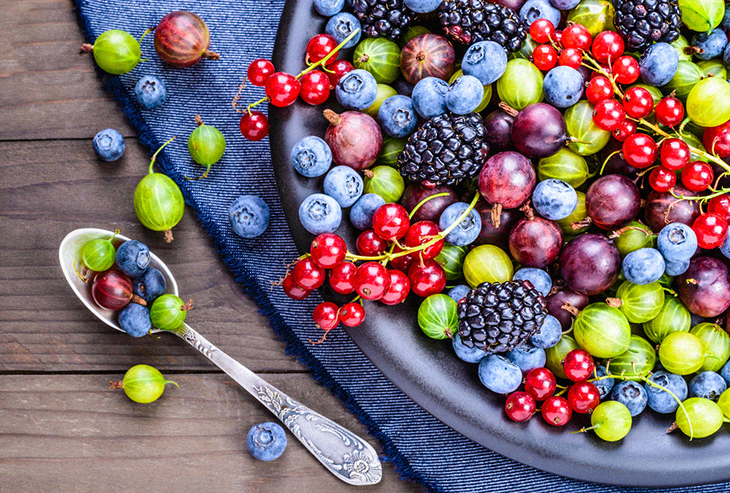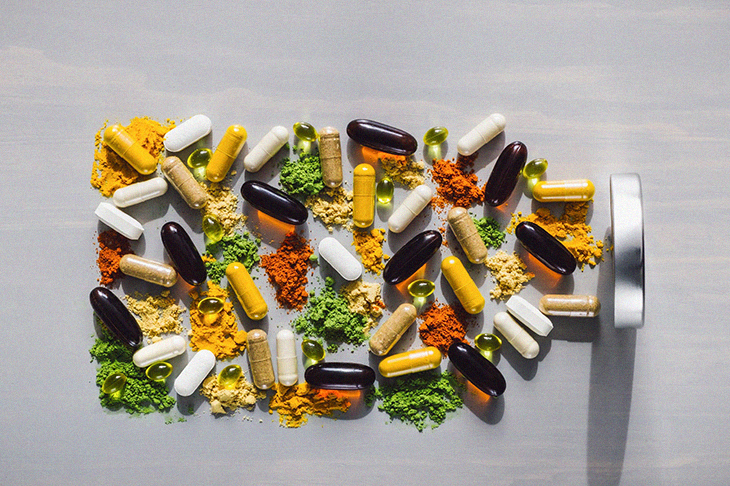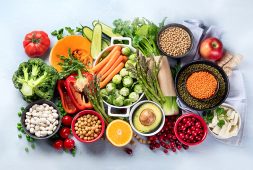
What do you really know about antioxidants? What most people know is that antioxidants and antioxidant-rich food and supplements can benefit our health, but do we really know how these antioxidants function in our bodies or what they really are?
An article in Biomolecules explains that the word “antioxidant” is actually considered one of the most confusing scientific terms, mostly because scientific literature doesn’t clearly define the term in the first place. Here, we will take a deeper look into antioxidants, in order to truly understand what they are and how they affect people’s health.
What Exactly Are Antioxidants?
Antioxidants are explained as compounds that help lessen or inhibit oxidation or cellular damage with their ability to neutralize molecules that are also known as free radicals.
Free radicals, on the other hand, are ‘molecules that contain one or more unpaired electrons in their outer orbit’. This makes them highly reactive and unstable, which associates them with a number of human diseases. The body makes them during its ‘normal endogenous metabolic processes,’ which includes energy production. The body also produces free radicals as a response to one’s environmental factors and lifestyle choices, which can include sun exposure, alcohol consumption, smoking and many other considerations.
Since antioxidants are known to inhibit the process of oxidation, the result is a production of free radicals which then lead to cellular damage. Antioxidants can safely engage with free radicals, neutralizing them before they can cause any damage to a person’s lipids, proteins, and DNA.
Oxidative stress happens when there are too many free radicals within the body. This can cause an imbalance because of increased production of free radicals, or otherwise lessened antioxidant defenses.
Free radicals actually play a vital role in the normal physiological functioning of the body when it comes to contributing to one’s health. But, when the body has an excess production of free radicals, it can also heighten one’s risk of disease. In fact, a number of chronic diseases, like cancer and heart disease, are linked to progressive damage due to free radicals.
Antioxidant Defense Systems
A person’s cells have an antioxidant defense system which actually helps keep one’s free radical production in check. For instance, cells that have antioxidant enzymes will aid in lessening the free radical levels. The primary antioxidant enzymes in the cells contain superoxide dismutase (SOD), glutathione peroxidase (GPx), catalase (CAT), and glutathione reductase (GRx).
As such, these antioxidant enzymes are also considered the first-line defense antioxidants. They also help in regulating free radical levels by ‘neutralizing both free radicals and other molecules that have the potential to become free radicals.’
Meanwhile, through metabolism, the body also produces metabolic antioxidants. These include melatonin, L-arginine, lipoic acid, coenzyme Q10, metal-chelating proteins, bilirubin, glutathione, uric acid, and transferrin.
Yet there are still some antioxidants which the body cannot produce. This means that a person must absorb them in other ways, like through their food or taking dietary supplements. Such nutrient antioxidants are those antioxidant vitamins including vitamins C and E, carotenoids, flavonoids, manganese, selenium, zinc and omega-3 and omega-6 fats.
Supplemental and dietary antioxidants are usually the most popular in the nutrition world since eating an antioxidant-rich diet helps boost the body’s antioxidant defenses.
Supplements vs. Antioxidants in Food

Knowing whether antioxidants in food vs. supplements are better can be difficult and confusing. While antioxidants happen naturally in food, dietary supplements with numerous other antioxidant compounds claim that they can push and support the body’s antioxidant defenses. Food like vegetables, fruits, nuts and spices have loads of different compounds that act as natural antioxidants.
For example, pears, apples, cherries, grapes and berries all have a group of plant chemicals which are known as polyphenol antioxidants. Incredibly, there are said to be more than 8,000 varieties of polyphenol antioxidants in nature.
Notably, bright colored fruits and veggies are said to have high concentrations of carotenoids, which is yet another class of antioxidants. But, it’s important to note that these natural food-derived antioxidants are quite different from the ones found in dietary supplements.
As an example, vitamin E has many different forms including natural vitamin E and synthetic vitamin E, but it’s important to know that all these forms of vitamin E also have different effects on the body as well. Because of this, there have been a number of studies that are investigating the possible health benefits of vitamin E supplements which have shown inconsistent results.
Also, most supplements tend to have concentrated doses of the isolated antioxidant compounds too, which can also have a different impact on one’s health than antioxidant-rich foods.
While antioxidant-rich foods are important for one’s health and are extremely nutritious, taking high-doses of antioxidant supplements could actually be more harmful to some than they can be healthy.
So Can Antioxidants Harm Health?
There’s no doubt that consuming a diet that’s concentrated in antioxidant-rich foods, like fruit and vegetables, is truly beneficial to one’s overall health. And at the same time, the relationship between the supplemental antioxidants and disease prevention is not as known.
A number of studies have stated that taking supplements that have very high concentrates of antioxidants can also benefit particular aspects of someone’s health. For instance, researchers have managed to link antioxidant supplements such as omega-3 fats, resveratrol, vitamin C, selenium and curcumin with a number of positive health outcomes.
But while some antioxidants provide health benefits for those that take them for a particular reason, it doesn’t always means that using these supplemental antioxidants are always necessary or safe. In fact, there is some research that shares that taking particular antioxidant supplements could interfere with the body’s natural signaling pathways, which could then negatively impact their health.
Moreover, some studies have also found that high-dose antioxidant supplements could be harmful in particular populations. For instance, scientists have linked vitamin E use with an increased risk in prostate cancer in otherwise healthy adult males. In the same way that beta carotene supplements can also increase the risk of lung cancer in people that smoke.
At the same time, research has shown that there is still ‘no clear benefit of antioxidant supplements on disease risk.’ There is also evidence that taking higher doses of vitamin E, vitamin A and beta-carotene supplements may also increase mortality risk.
What this suggests is that taking supplements of particular antioxidants could possibly disrupt one’s natural antioxidant defense network while possibly harming one’s health if not taken appropriately. On the other hand, research has also shown a consistent link between antioxidant-rich diets high in vegetables, spices, fruits and other natural sources of antioxidants with a lowered risk of disease, without finding any associations with negative health outcomes.
Because of this, experts suggest that people need to focus on taking in antioxidants in the food they consume. They also don’t recommend that people consume high-doses of antioxidant supplements unless they have been explicitly recommended by their healthcare professional.
Here’s the Bottom Line
While there is no question that consuming a large amount of antioxidant-rich foods in their diet is beneficial for one’s health, it can even aid in preventing disease development. Yet, researchers still don’t recommend taking antioxidant supplements routinely for their overall health since there is evidence that proves taking high-dose antioxidant supplements could actually do more harm than good to one’s overall health.
It is always recommended to avoid taking high-dose antioxidant supplements unless they are prescribed by a trusted healthcare professional or provider. Instead, try to consume antioxidants via other foods and beverages like fruits, vegetables, fish, nuts, spices and teas.



